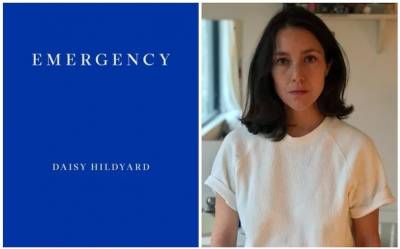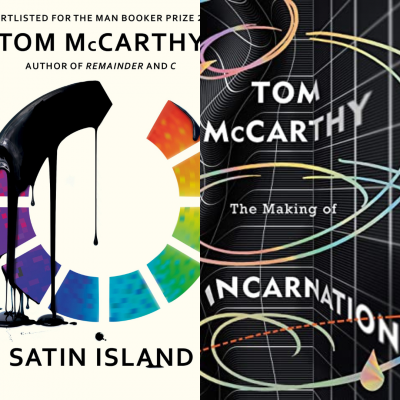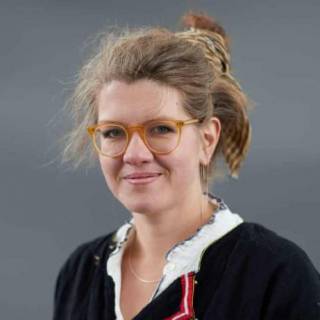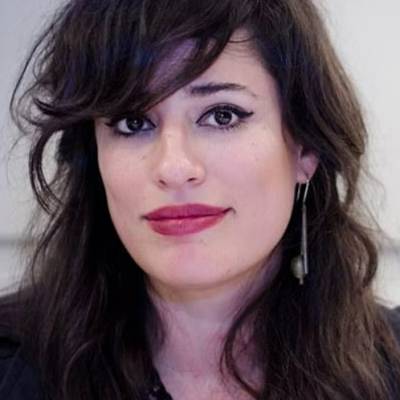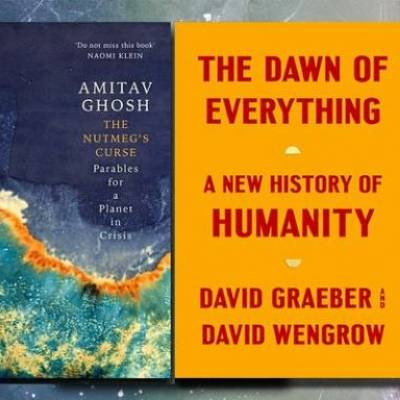Writers of the Anthropocene is a series of events in which we invite speakers to discuss the Anthropocene through the lens of their writing and writing practices
Our seminar series ‘Writers of the Anthropocene’ looks at the Anthropocene through the lens of different literary genres across ‘cli-fi’, non-fictional prose, poetry, science writing, literary fiction and more.
Hosted jointly with the Institute of Advanced Studies, the series is co-convened by Professor Florian Mussgnug (SELCS) and Professor John Sabapathy (History), with colleagues across the Social and Historical Sciences and Arts and Humanities in conversation with writers about what insights particular genres enable, and how they transgress and develop new approaches to discussing the Anthropocene.
Writers of the Anthropocene will return in the Autumn term. See below for our fantastic previous speakers.
Our previous events:
23 March 2023, IAS Common Ground - WATCH THE RECORDING HERE
Daisy Hildyard is author of two novels – Emergency (2022) and Hunters in the Snow (2014) – and one work of nonfiction, The Second Body (2017). Her most recent book, Emergency, tells stories of the global connections, and the human-nonhuman relationships, within a small rural area of the north of England. Her writing has received awards including a ‘5 under 35’ honorarium (National Book Awards, USA) and a Somerset Maugham Award (Society of Authors, UK). She contributes to publications including The Guardian, Granta, The Times Literary Supplement, The London Review of Books, frieze, and art-agenda. She lives in North Yorkshire.
22 April 2022, IAS Common Ground
Author Tom McCarthy’s latest book The Making of Incarnation (2021) centres on the international search for a box missing from the archives of time-and-motion pioneer Lilian Gilbreth. His works include Remainder (2005), Men in Space (2007), C (2010) and Satin Island (2015) and have been translated into more than twenty languages and adapted for cinema, theatre, and radio.
7 June 2022, IAS Common Ground - Hybrid
Award-winning novelist Jessie Greengrass read from her latest novel, The High House (2021), speaking about climate activism and the arts, in conversation with Lara Choksey and Florian Mussgnug. This event was jointly hosted by the UCL Quo Vadis Festival of the Arts and Humanities, UCL Anthropocene, and the UCL Institute of Advances Studies, and in support of the UCL Sustainable Development Goals Initiative.
YouTube Widget Placeholderhttps://youtu.be/O3DKPF5hT5M?si=nsctfIxBxUbRGhjP
11 March 2024, in partnership with UCL SSEES
The International Booker Prize winning author Georgi Gospodinov and his translator Angela Rodel joined UCL SSEES’s Uilleam Blacker, who was a member of the judging panel for the Prize, for a conversation about Georgi’s latest, multi-award-winning novel, Time Shelter, a brilliant, satirical look at memory, nostalgia and populist politics.
24 May 2022, Online - WATCH THE RECORDING HERE
Pola Oloixarac is the author of three novels Savage Theories (2014), Dark Constellations (2015) and Mona (2019). Her critically acclaimed novels deal with interrelated themes of political history, the 'apocalyptic trajectory of the anthropocene' and the role of science, literature and anthropology (among other disciplines) in making sense of the past, present and future of humans in the web of life.
16th June 2022, (part of UCL Anthropocene's Dawn of Everything event) - WATCH THE RECORDING HERE
Amitav Ghosh’s The Great Derangement (2016) challenged writers of modern fiction for their uninterest in group life and environments, a lack of interest which makes the Anthropocene unthinkable. The Nutmeg’s Curse (2021) opens out the fruit of the nutmeg tree to produce a more-than-human history of imperial and corporate entanglements which provide a set of instructive ‘parables for a world in crisis’. Here he responds to The Dawn of Everything as another exercise in using writing to try to make something happen, to which David Wengrow will reply.

 Close
Close


